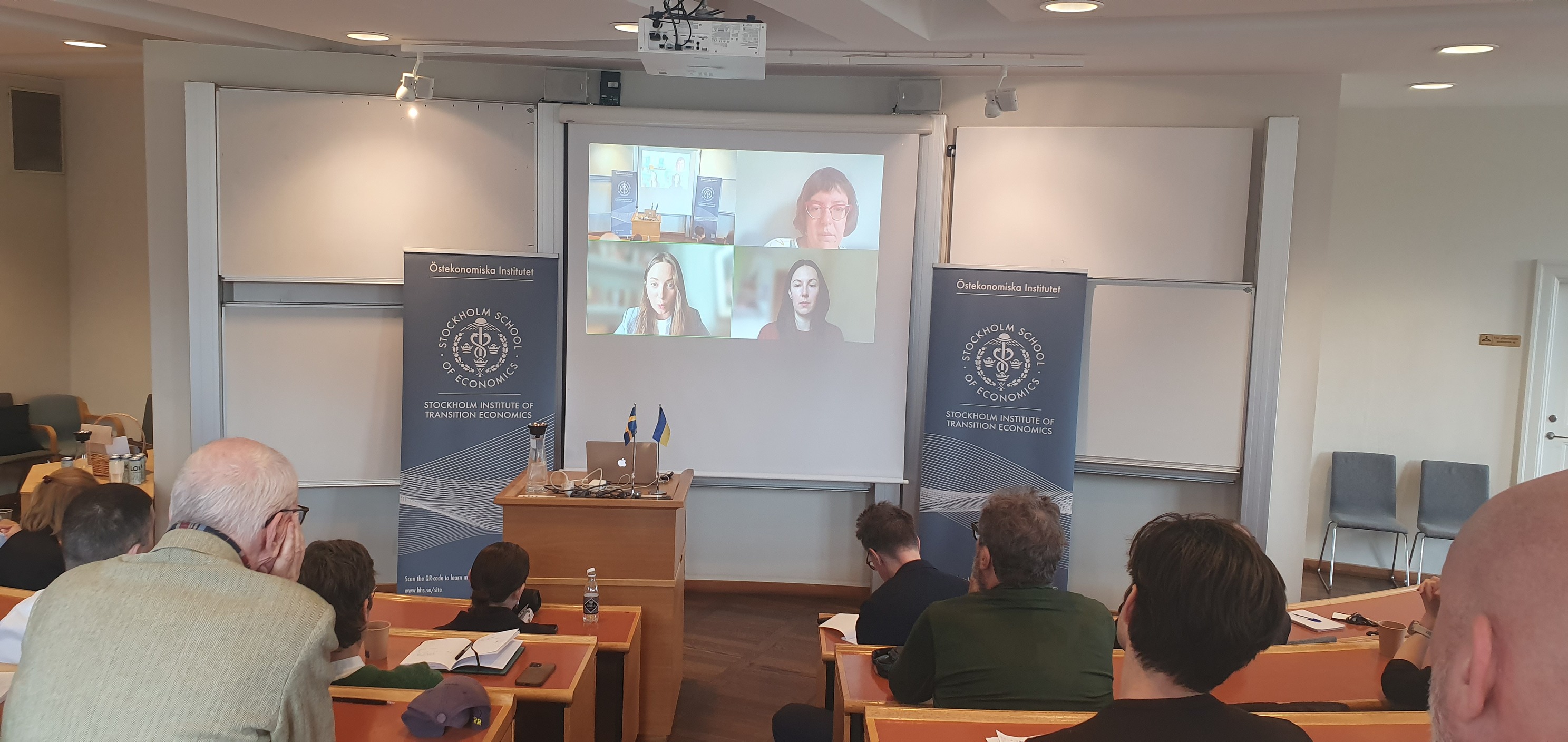Ukraine on the Path to the EU: How the EU’s Sanctions Requirements Are Being Implemented

On May 13, Tetiana Khutor, Head of the Institute of Legislative Ideas, presented Ukraine's key achievements and challenges on the path toward alignment with the EU sanctions policy during the roundtable “Ukraine’s EU integration: Institutional adaptation and green recovery,” organized by the Stockholm Institute of Transition Economics and the Nordic Ukraine Forum.
The event brought together representatives of the Swedish Ministry of Foreign Affairs, think tanks, academia, trade unions, and environmental organizations supporting Ukraine's reform agenda in line with EU standards.
In her speech, Tetiana Khutor emphasized that for the first time, Ukraine has taken a systemic approach to the criminalization of sanctions violations - in close cooperation with government bodies, including the Ministry of Justice, the Security Service of Ukraine, the National Agency on Corruption Prevention, the Prosecutor General's Office, the National Bank of Ukraine, and the Office of the President.
A major step was the submission of Draft Law No. 12406 by the President, which:
-
establishes liability not only for intentional but also for negligent violations of sanctions;
-
recognizes sanctions circumvention as a separate criminal offense;
-
introduces a material threshold lower than the EU's - 3,500 euros;
-
provides for corporate liability.
It was also highlighted that the provisions of the draft law already take into account key requirements of the new EU Directive 2024/1226, which was introduced in response to widespread sanctions violations across Europe.
At the same time, Tetiana Khutor drew attention to the remaining challenges:
-
the need for a licensing mechanism for exceptional cases (such as medical aid, legal support, etc.;
-
regulation of the obligation for sanctioned individuals to declare assets;
-
ensuring legal certainty under the sanctions regime.
In conclusion, Tetiana Khutor stressed that sanctions policy is not only a matter of pressure on the aggressor but also a marker of the legal capacity of a candidate country for EU membership.




